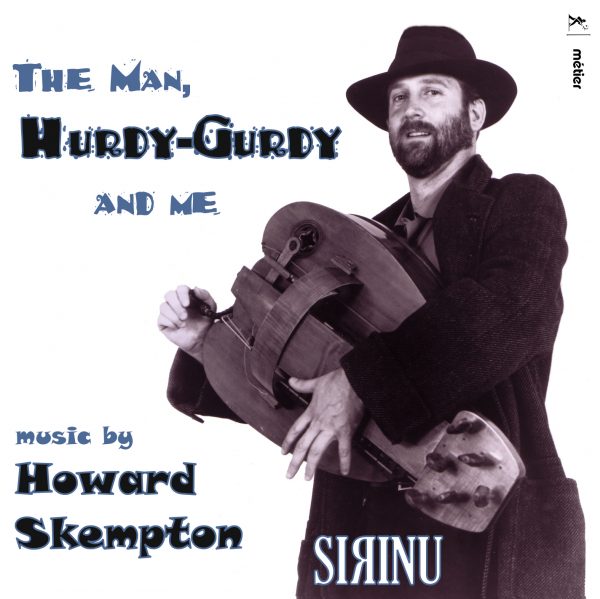Fanfare
Sirinu is a British ensemble of six musicians who play a wide range of unusual, even quirky, instruments. One member, Sara Stowe, plays keyboards and gamelan; she also sings in a kind of Celtic folk style and serves as an arranger. The instruments listed on this disc of chamber music by Howard Skempton also include hurdy-gurdy, lute, viol, medieval harp, harpsichord, and recorder in addition to a complement of conventional instruments (guitar, flute, alto flute, oboe, double bass, and percussion). That’s a remarkable range for six musicians to handle. Sirinu specializes in both early and new music. Skempton (b. 1947) is a British composer who writes for “unusual combinations of early, folk and modern instruments,” according to the booklet note. The program includes chamber reductions of his Concerto for Hurdy-Gurdy and Percussion and Concerto for Accordion and Oboe. They have been set as quintets by members of the group.
The program opens with whimsical song in folk style, The Man Hurdy-Gurdy & Me, which exemplifies Skempton’s bent for the lighter side. It’s about a girl enamored of a hurdy-gurdy player who gets his inspiration by looking up at the sky at Antares, a red giant star. The song is scored for soprano, hurdy-gurdy, medieval harp, and percussion. One issue that arises immediately is Sara Stowe’s voice, which is thin, reedy, and lacking much color. Stowe is soprano soloist in four songs, and the dryness of her sound persists throughout.
Other Fanfare reviewers have observed that the majority of Skempton’s pieces tends to be brief. Even the two concertos are on the short side at 13 and 17 minutes. One problem I find with Skempton’s music is a lack of true thematic development. He repeats melodic patterns, varying them slightly but rarely actually developing them into something more than their original statement. The first movement of the Concerto for Hurdy-Gurdy and Percussion is a perfect example. By the end of that quite short movement I had tired of the endlessly repeated material. One gets the impression that Skempton is often trying for a faux-naïve style, which might appeal to others more than it does to me. Gentle Melody for solo accordion does offer what it promises, a lovely lilting theme, and accordionist Jon Banks retains a hold on our interest to some degree by enriching the instrumental color as he goes. Even so, after two minutes we have heard enough.
I had hoped to enjoy this disc more than I did. The unusual combinations of instruments intrigued me, and a few works managed to hold my attention, including The Beauty of the Morning, which is scored for slendro gamelan trio (slendro indicating that the gamelans are tuned to the pentatonic scale). The piece is attractive for its unusual colors, though even here thematic limitations are present. The accompanying notes are informative, and it is good that Métier included texts for the songs. The recorded sound seems naturally balanced, although the soprano is sometimes covered by the instruments. The performers seem very skilled on their various instruments.
@divineartrecordingsgroup
A First Inversion Company
Registered Office:
176-178 Pontefract Road, Cudworth, Barnsley S72 8BE
+44 1226 596703
Fort Worth, TX 76110
+1.682.233.4978












